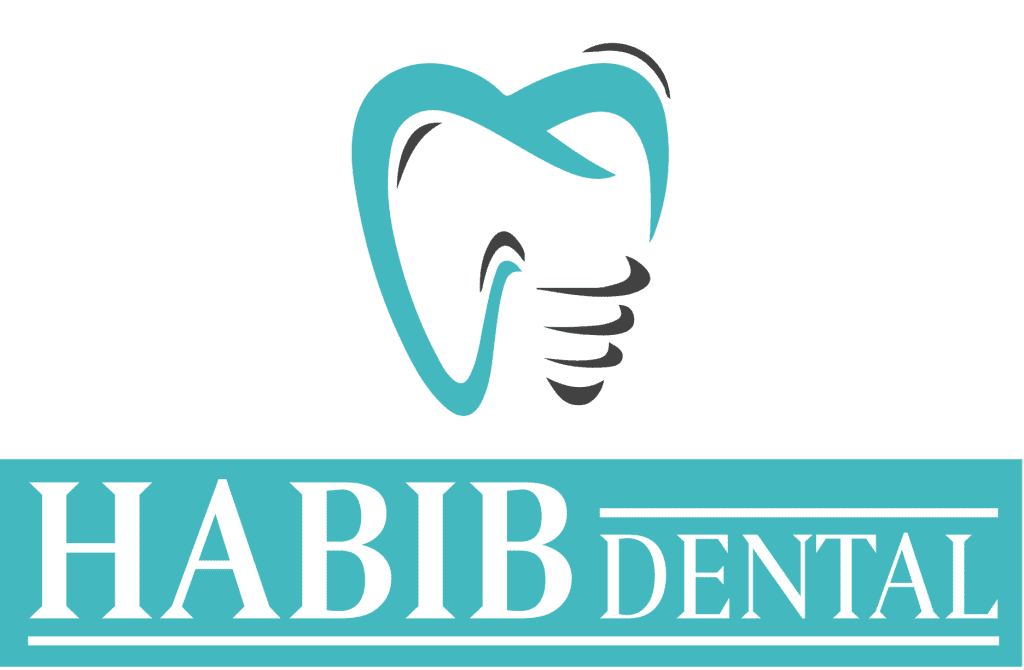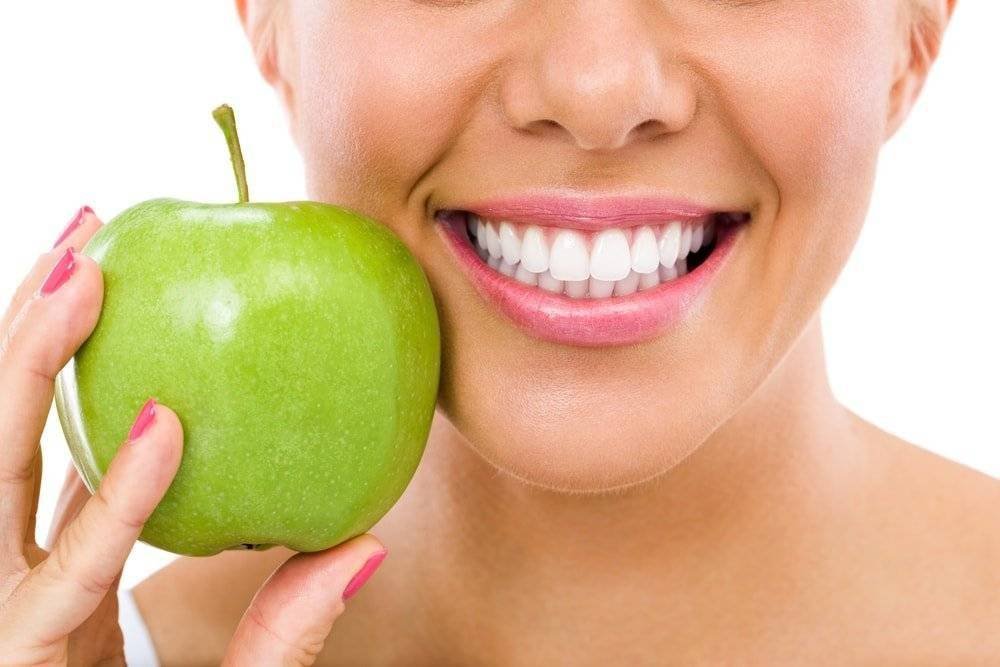What we eat directly affects the health of our oral cavity. Be it positive or negative, each food and drink that comes into contact with our teeth and gums can have a potential effect. For example, sugary foods provide a rich food source for bacteria in our mouths, leading to the production of acids that can erode tooth enamel. On the other side, certain foods that are rich in vitamins and minerals can strengthen the enamel, combat bacteria, and promote oral health as a whole.
The Link Between Diet and Healthy Teeth & Gums
Diet and oral health are interrelated. Eating a balanced diet ensures that our teeth and gums get the essential nutrients to stay strong and resilient against potential threats. For instance:
- Calcium, available in dairy products, fortified foods, and leafy greens, is essential for strong tooth enamel and jawbone health.
- Phosphorus, found in meats, poultry, fish, and dairy, works together with calcium to boost our teeth’s strength.
- Vitamin C from citrus fruits, bell peppers, and broccoli, helps in maintaining the health of gum tissues and can prevent gingivitis and gum bleeding.
- Fluoride, found in fluoridated water and certain toothpastes, helps prevent tooth decay by making teeth more resistant to acid attacks from bacteria.
Neglecting these important nutrients or indulging excessively in sugary and acidic foods and beverages can compromise our oral health. This, in turn, causes dental caries, gum diseases, and other dental issues.
Nutrients Essential for Oral Health
Calcium: Role in Tooth Enamel Strength
For the development and maintenance of strong teeth, calcium is an important mineral. It plays a crucial role in hardening the tooth enamel, which acts as the outer protective layer of the tooth. A calcium-rich diet can help prevent tooth decay and gum diseases by keeping the jaw bone strong and healthy.
Dietary Sources
- Dairy products like milk, cheese, and yogurt
- Leafy green vegetables, such as kale and spinach
- Fortified foods like orange juice, cereals, and plant-based milk (e.g., almond, soy)
- Nuts, particularly almonds
- Fish such as sardines and salmon (with bones)
Vitamin D: Importance for Calcium Absorption
Vitamin D is crucial in making sure that the body can effectively absorb and utilize calcium. Without a sufficient level of vitamin D, calcium absorption is compromised, possibly leading to weaker bones and teeth. Vitamin D also plays a role in bone mineralization, ensuring teeth stay strong throughout one’s life.
Sunlight Exposure and Dietary Sources
- Sunlight: The skin synthesizes vitamin D when exposed to sunlight, especially the UVB rays. Based on the individual’s skin type and location, around 10-30 minutes of sunlight exposure several times a week can support vitamin D production.
- Fatty fish such as salmon, mackerel, and sardines
- Fortified foods including cereals, dairy, and plant-based milk
- Eggs (specifically the yolk)
- Beef liver and cheese
Phosphorus: Supporting Tooth Structure
Phosphorus works in combination with calcium to form the mineral hydroxyapatite which is the key component of tooth enamel and bones. This combination makes teeth more resilient to decay and other oral issues.
Foods Rich in Phosphorus
- Protein-rich foods like poultry, fish, and red meat
- Dairy products such as milk, cheese, and yogurt
- Legumes including beans and lentils
- Whole grains and nuts
- Potatoes and broccoli
Vitamin C: Role in Gum Health
Vitamin C, a protein that helps maintain the strength and integrity of gums, is vital for the production of collagen, ensuring they stay healthy and prevent gum diseases such as gingivitis. A deficiency in vitamin C can lead to swollen, bleeding gums, and in serious cases, tooth loss.
Citrus Fruits and Beyond
- Oranges, lemons, limes, and grapefruits
- Berries, especially strawberries
- Kiwi and papaya
- Vegetables like bell peppers, broccoli, and Brussels sprouts
- Tomatoes and spinach
Foods that Promote Healthy Gums
Crunchy Fruits and Vegetables: Natural Cleaning Action
Crunchy fruits and vegetables such as apples, carrots, and celery act like natural toothbrushes. When chewed, their fibrous texture helps to clean the surface of the teeth and massage the gums, removing plaque and food particles.
Stimulation of Saliva Production
Chewing crunchy fruits and vegetables also stimulates saliva production. Saliva plays a crucial role in neutralizing acids, washing away food debris, and preventing bacterial growth. All of these contribute to healthier gums and decreased risks of gum diseases.
Dairy Products
Calcium and Phosphorus Benefits
Dairy products like milk, cheese, and yogurt are rich in calcium and phosphorus. As discussed before, these minerals play a crucial role in strengthening teeth. But they also play a role in restoring and maintaining gum health, particularly by promoting the re-mineralization of tooth enamel.
Low-Acidic Options for Gum Health
Different from many beverages and foods which are acidic and can erode tooth enamel, dairy products tend to be low in acidity. This property makes them especially friendly for the gums and oral health as a whole.
Green Tea
Polyphenols and Their Effects
Green tea has compounds called polyphenols which have antioxidant properties. These polyphenols can help decrease inflammation in the body, including in the gums. Inflammation is a key factor in many gum diseases, that’s why decreasing inflammation can play a crucial role in maintaining gum health.
Reducing Bacterial Growth
Polyphenols in green tea also have antimicrobial properties. They can help minimize the growth and activity of bacteria that lead to plaque, as a result, preventing gum diseases and promoting overall oral health.
Foods and Habits to Avoid
Sugary and Acidic Foods
- Impact on Tooth Decay
- Sugary foods and drinks, such as candies, pastries, and sodas, increase the growth of harmful bacteria in the mouth. These bacteria convert sugars into acids, which can erode tooth enamel and lead to cavities. Acidic foods and beverages, such as citrus fruits and carbonated drinks, can directly erode tooth enamel, weakening the teeth and making them more prone to decay.
- Moderation and Smart Choices
- It is not important to remove sugary or acidic foods from the diet entirely, rather it is wise to eat them in moderation. After eating such foods or drinks, rinsing the mouth with water or brushing the teeth can help neutralize acids. Choosing sugar-free or low-acid options can also decrease the risk of dental issues.
Tobacco Products
Link Between Smoking and Gum Disease
Smoking or chewing tobacco can significantly increase the risk of gum disease. Tobacco decreases blood flow to the gums, depriving them of necessary nutrients and disrupting their ability to heal. It also magnifies the amount of harmful bacteria in the mouth, leading to plaque buildup, gum inflammation, and eventual gum disease.
Oral Health Benefits of Quitting
Quitting tobacco can greatly decrease the risk of gum disease and other oral health issues. The gums will begin to heal, and blood flow will improve, leading to healthier gums and better oral health as a whole. The risk of oral cancer also reduces significantly upon quitting.
Excessive Alcohol Consumption
Dehydration and Oral Health Risks
Alcohol acts as a diuretic, causing dehydration. A dry mouth lacks sufficient saliva, which plays a vital role in neutralizing acids, washing away food debris, and stopping bacterial growth. As a consequence, excessive alcohol consumption can lead to an increased risk of cavities, gum disease, and other oral health issues.
Maintaining Balance for Overall Health
If one decides to consume alcohol, it is important to do so in moderation and stay hydrated by drinking water besides alcoholic beverages. This can help maintain saliva production and minimize the risk of oral health issues.
Meal Timing and Its Impact
Importance of Regular Meal Times
Eating meals at regular intervals assures a consistent supply of nutrients to the body, including the ones that are crucial for oral health. Regular meal times also help maintain steady blood sugar levels, decreasing the craving for sugary snacks that can be detrimental to teeth and gums.
Snacking and Its Effect on Oral Health
Frequent snacking exposes teeth to a continual attack from acids, especially on sugary or acidic foods and drinks. This can cause the erosion of the protective enamel on teeth and increase the risk of cavities. If snacking is important then it is better to choose teeth-friendly snacks such as cheese, nuts, or crunchy vegetables.
The Role of Hydration in Oral Hygiene
Staying hydrated is vital for overall health and significantly for oral hygiene. Water helps wash away food particles, neutralizes acids produced by bacteria in the mouth, and promotes saliva production. Saliva works as a natural defense against decay and gum disease by neutralizing harmful acids and providing enzymes to fight bacteria.
Special Considerations
Dietary Guidelines for Children
- Developing Healthy Eating Habits
- Introducing a varied diet from a young age can help children build healthy eating habits that support their oral health. This consists of foods rich in calcium, phosphorus, and vitamins vital for strong teeth and gums.
- Avoiding Sugary Snacks and Drinks
- Restricting the intake of sugary snacks and beverages, especially between meals, can significantly decrease the risk of cavities in children. Rather, offer water, milk, or teeth-friendly snacks.
Dietary Tips for Pregnant Women
- Nutrient Needs for Both Mother and Baby
- Pregnancy requires increased nutrients to support both the mother and the developing baby. Eating a balanced diet rich in calcium, vitamin D, and other necessary nutrients ensures the mother’s teeth and gums stay healthy while also supporting the baby’s developing teeth buds.
- Oral Health Implications
- During pregnancy, hormonal changes can increase the risk of gum disease. This makes it even more important for pregnant women to focus on oral hygiene and have a balanced diet. Regular dental check-ups can help monitor and identify any oral health concerns during pregnancy.
Practical Tips for Incorporating Healthy Dietary Habits
Meal Planning for Oral Health
- Start with a Template: Before grocery shopping, prepare a basic menu for the week. This can help ensure that every meal is balanced and contains the essential nutrients for oral health.
- Rotate Foods: Include a variety of foods to get a range of vitamins and minerals. This supports oral health as well as prevents mealtime monotony.
- Read Labels: While buying processed or packaged foods, check the sugar content. Go for items with lower sugar and stay away from those with added sugars or acidic preservatives.
Creating Balanced and Nutrient-Rich Meals
- Include All Food Groups: Ensure that each meal has a protein source, whole grains, vegetables, and fruits. Dairy or its alternatives can be added for calcium and phosphorus.
- Cook in Batches: Preparing large meals and storing portions can make sure that there is always a healthy option available, decreasing the probability of reaching for sugary or unhealthy snacks.
Tips for Making Oral-Friendly Food Choices
- Limit Sugary Drinks: Choose water, unsweetened teas, or milk in place of sodas, sports drinks, or sweetened beverages.
- Snack Smartly: If you need a snack, choose options such as cheese, yogurt, nuts, or raw vegetables. They are nutritious and also beneficial for teeth.
- Finish Meals with a Rinse or Crunchy Veggies: If brushing is not an option instantly after a meal, rinsing the mouth with water or eating crunchy vegetables such as carrots or celery can help clean the teeth.
The Role of Dentists and Dental Professionals
Providing Dietary Guidance in Dental Practices
- Dentists and their teams play a vital role in educating patients about the connection between diet and oral health. Regular check-ups provide chances to discuss dietary habits and make recommendations customized to individual needs. Demonstrating the effect of certain foods on oral health can drive home the significance of diet in maintaining a healthy mouth.
Collaborating with Nutritionists for Comprehensive Care
- Dental professionals can collaborate with nutritionists or dietitians for patients who have specific dietary needs or challenges. This partnership makes sure that patients get comprehensive advice that supports both their oral health and well-being as a whole. A holistic approach that encompasses both dental and nutritional guidance can offer the best outcomes for patients.
Frequently Asked Questions (FAQs)
Q. Is it okay to snack between meals, and what snacks are good for my teeth?
A. Healthy snack choices include fruits, vegetables, and dairy products. While choosing snacks, it is best to avoid those high in sugar or acidity, since they can contribute to tooth decay and erosion. In lieu, opt for options that are nutrient-dense and supportive of oral health.
Q. How does alcohol affect oral health?
A. Excessive alcohol consumption can lead to dehydration, which, in turn, decreases saliva production. Saliva plays a crucial role in neutralizing acids and washing away food particles. Without it, there’s an increased risk of gum disease, tooth decay, and other oral health issues. In addition, some alcoholic beverages, such as wines, can be acidic and contribute to tooth erosion.
Q. Can pregnant women use fluoride toothpaste?
A. Yes, fluoride toothpaste is recommended for pregnant women. Fluoride helps strengthen tooth enamel and prevent decay. However, it is vital to use it properly and not swallow it.
Q. Are there specific dietary guidelines for toddlers to promote oral health?
A. For toddlers, it is important to limit the intake of sugary snacks and drinks, which can lead to early childhood cavities. Encourage drinking water and introduce a variety of nutrient-rich foods to their diet like fruits, vegetables, and dairy products. Starting good eating habits early on can lay the foundation for lifelong oral health.
Q. Can vitamin supplements replace a healthy diet for good oral health?
A. Although vitamin supplements can provide necessary nutrients, they shouldn’t replace a well-balanced diet. Real foods provide a combination of vitamins, minerals, antioxidants, and other beneficial compounds that supplements might not capture. For optimal oral health and overall well-being, it is important to prioritize a nutrient-rich diet.
Q. How does smoking impact gum health?
A. Smoking significantly increases the risk for gum disease by hampering the immune response, minimizing blood flow to the gums, and stimulating bacterial growth. It can also lead to other oral health issues, including oral cancer and tooth loss.
Q. Are there foods that naturally clean teeth?
A. Yes, crunchy fruits and vegetables such as apples, carrots, and celery have a natural cleaning action when chewed. Their fibrous texture helps scrub the teeth’s surfaces, remove plaque, and stimulate saliva production.
Q. Can I drink coffee and still maintain good oral health?
A. Though coffee can stain teeth over time, moderate consumption shouldn’t seriously damage oral health. However, it is a good practice to drink water after consuming coffee to wash away any residues and neutralize acidity.
Q. How can I get enough vitamin D if I have limited sun exposure?
A. Vitamin D-rich foods include fatty fish, fortified dairy products, egg yolks, and mushrooms. Vitamin D supplements might be a good option if sun exposure is limited and dietary sources are inadequate. Consult with a healthcare provider for personalized recommendations.
Q. Are there natural remedies for relieving gum inflammation?
A. Aloe vera gel can soothe inflammation when applied to the gums. Rinsing with chamomile tea or a saltwater solution can also grant relief. However, it is important to consult a dentist for continuous or severe gum inflammation to ensure proper care and treatment.
Conclusion
Oral health is intricately linked to our overall well-being and the foods that we eat. Embracing a balanced and nutrient-rich diet supports our general health as well as fortifies our teeth and gums against possible issues. We can ensure a healthy smile that lasts a lifetime by understanding the importance of specific nutrients, being aware of foods and habits that might threaten our oral health, and incorporating preventive measures.


